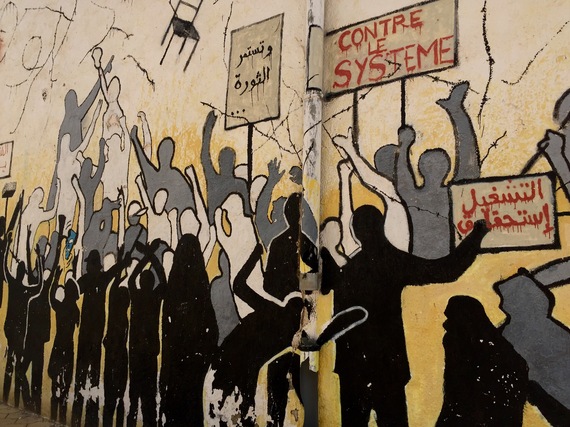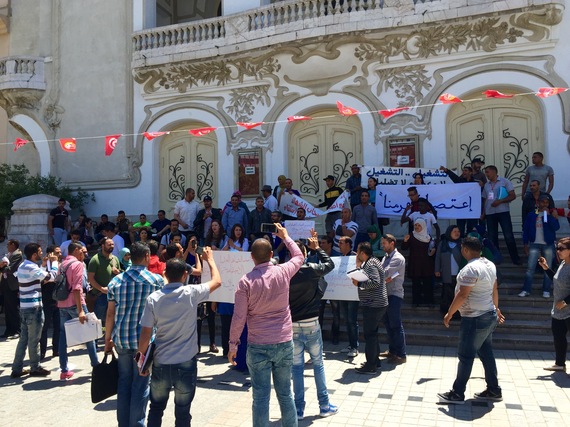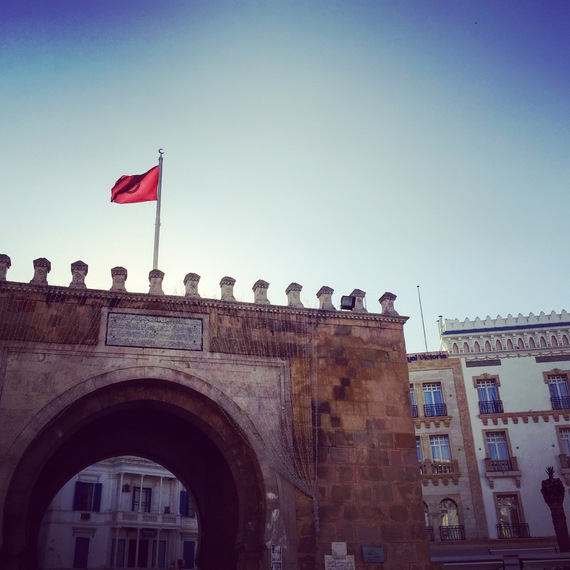The scene is sadly familiar. A hot, sweltering courtroom packed with anxious and sometimes crying family members. Court officers yelling to tell the audience to turn off their phones, sit down, and stay silent. Clerks and prosecutors shuffling through huge stacks of files and papers. A robed judge walks in. All rise and then sit back down.
Then, two dozen men are marched out of a back door - confused, worried, scanning the crowd to see if there is a family member present...or perhaps an attorney.
Most of the accused individuals won't have a lawyer to stand up and argue on their behalf. And the reason is simple: they simply cannot afford one.
Without the money to pay for an attorney, the accused person frantically tries to plead his case and explain his innocence before a judge without anyone by their side. The judge will typically announce his or her verdict or judgment after a two-minute back-and-forth with the accused. Sentences are pronounced: time served, community service, two months in jail, or one year in prison and massive fines for a minuscule amount of marijuana. People snatched out of their communities. Lives upended. Families devastated.
The scene could play out almost anywhere in the world, including the United States, where commitments to indigent defense, 50 years after the U.S. Supreme Court decision in Gideon v. Wainwright, remain unfulfilled across towns and cities nationwide.
I happened to be in Tunisia, working on behalf of the International Legal Foundation (ILF), an organization providing direct criminal defense services to the poor. The Tunisian ILF lawyers come to court with a commitment to client-centered advocacy that reflects international legal standards and the bold direction of post-revolution Tunisia and its new progressive constitution.
To address some of the problems within their justice system, Tunisia, consistent with its ongoing wave of democratic reforms, recently passed and has begun implementing a strong early access law which grants suspects the right to counsel at police stations, prior to formal detention and charging decisions. Early access to counsel can have dramatic impacts on case and life outcomes for clients, and benefits for society-at-large, including a reduction in pre-trial detention, accountability and transparency of law enforcement, and greater courtroom efficiency.
Tunisia went through a popular revolution in 2011, launching the Arab Spring, with dramatic changes to their political, social, and legal structures. Yet in Tunisia, as in many post-conflict nations, full rule of law remains aspirational at best. Legal advocacy for the vulnerable, in particular, is absolutely critical to protecting human rights and accessing justice. Effective legal aid and public defense for the indigent and marginalized can have broad impact on social stability and inclusive development.
The timing of legal aid is also of critical importance. Simply stated, the earlier the access, the greater the impact. Late access significantly diminishes the effectiveness of public defense. Most of ILF clients in Tunisia, for example, have been in custody for days or even weeks before they are appointed a lawyer. Many are signing confessions, submitting to drug testing, and being brought back and forth to court appearances without ever speaking to an attorney or being fully made aware of the charges against them. This too is often a universal experience, including even here in the United States, where advocates have long been fighting for the assignment of counsel at arraignments and bail hearings - providing at least minimal teeth to the spirit behind the Miranda warnings.
The presence of attorneys at an early stage will have potentially profound impact on the rule of law and advancing justice in Tunisia, including:
- Eliminating false confessions and incidents of abuse such as arbitrary or illegal detentions, and even torture
- Creating space for interventions to divert cases based on substance abuse or mental health concerns
- Fostering a specialized focus on protecting juveniles, women, and other marginalized groups from abuses spurred by incarceration
- Allowing counsel to challenge the routine use of improper and shoddy medical and drug testing
- Reducing the population of overcrowded and dangerous jail facilities, where criminal gang and terrorist recruiting is rampant
There are, of course, significant open questions including how the law will be systemically implemented and promoted across the country, particularly for the poor, and what the legal remedy will be for the violation of these rights. But early access to lawyers at police stations is the type of legal reform that can and should be replicated everywhere, from post-conflict countries to jurisdictions here in the United States.
Advocates across the world have long argued the import of early access to counsel, and laws such as those in Tunisia demonstrate that the push is finally bearing fruit. But as lawyers and advocates, we must keep pushing our legal systems, no matter the context or location, to be more accountable, more accessible, and more fair - particularly for those whose rights are often trampled on by systems because of poverty or other marginalized statuses.
If implemented effectively, Tunisia's early access law should be something its people can be proud of as they consider the successes of its popular revolution, and may well end up serving as a model for countries around the world, including the United States, to learn from and replicate. Certainly for those poor accused and detained men in Tunisia who I watched being forced to stand up in court and plead for their freedom by themselves, the impact of having a lawyer from the moment of their detention could be truly life-changing.


